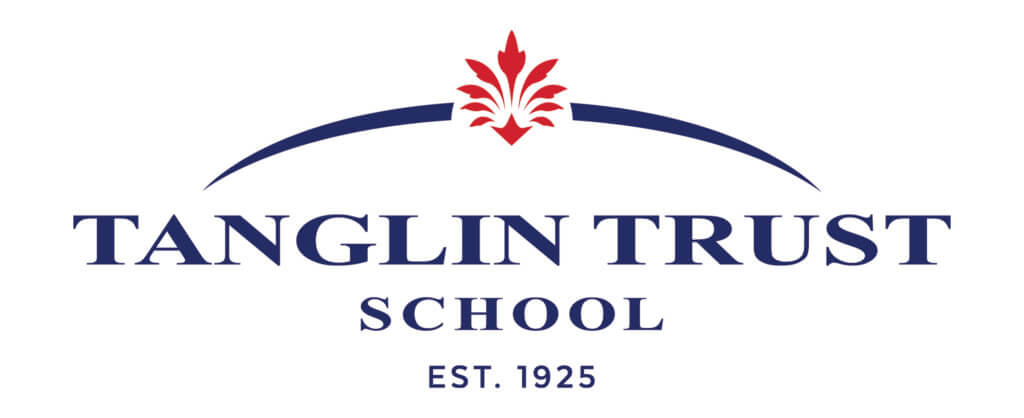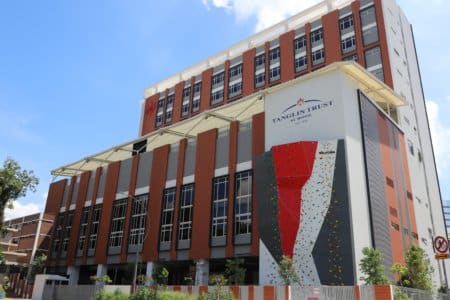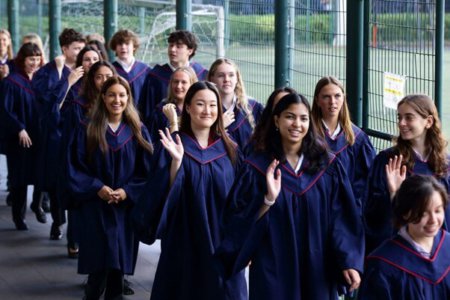In September 2015, the United Nations adopted its most ambitious vision yet to improve the lives of people worldwide over the next 15 years. At that summit meeting in New York, all UN Member States committed to the 17 Sustainable Development Goals (SDGs), covering areas such as poverty, public health, the environment, education and justice, and 169 specific targets.
Over in Singapore, the pondering, solving and accomplishing of what it’ll take to achieve its long-term net zero emissions aspiration by 2050 took off. Some of The Green Plan’s key targets include planting one million more trees, quadrupling solar energy deployment by 2025 and reducing the waste sent to landfill by 30% by 2030. It’s a multi-agency, whole-of-nation approach that at first glance, does not seem doable, not even for a country as efficient and effective as Singapore.
Head to Tanglin Trust School and sceptics may just change their minds. In the years leading up to the adoption of the SDGs, the school has been promoting the importance of caring for the environment. A big part of this was focused on making its campus more “green” through infrastructure, facilities and housekeeping.
In February 2022, the school made sustainability a whole school priority in its new Strategic Plan. The project kicked off with a working group of 30 staff members. Made up of a student representative, teachers as well as business departments, including Operations, Procurement and the Corporate Secretariat, they formed a 4 Cs model to frame its action plan: campus, culture, curriculum, and community.
The no. 1 priority? A healthier, greener campus that unlocked the perks of greater biodiversity and less energy use. They do more than empower students to learn, explore and discover more. “Numerous studies also show that spending time in and around nature can improve mental health, reduce anxiety and lessen stress. Furthermore, increased abundance and diversity of plants and trees also help to absorb pollutants and reduce our carbon footprint,” says Ali Lott, Head of Middle School (Science).
The impact of this was obvious from the start. It provided more opportunities for collaboration and reinforced shared values. A food waste project, partnering with the National Environment Agency, sends scraps to a nearby facility to turn scraps into biogas, a clean and renewable energy source. A Sixth Form Cafe redesigned into a sustainability hub displays infographs, good news stories and potential solutions. The senior school canteen puts up information about food and water issues. E-waste is collected in a three-week drive to be managed and recycled appropriately. Wall stickers above light switches and AC units remind people to switch off when they leave. In canteens, biocups and large serving containers replace individually plastic-wrapped muffins and cakes. Student-run edible gardens plant trees around campus. Energy use is tracked by EnTrak, the Operations department and faculties.
During Sustainability Week this March, students raised money to restore nature to their city, were encouraged to have meat-free lunches, brought their own cups on Trashless Tuesday, went to school car-free on Walk-In Wednesday, presented about tech solutions to environmental problems and switched all lights, screens and air conditioners for an hour.
All of these show real-world examples of what students learn about the SDGs in classrooms. Introduced to the Infant School as “Good Life Goals” in assemblies, circle times and via the curriculum, they are then explored through multidisciplinary lenses, such as the story of a lost polar bear returning to a disappearing habitat, which spans the subjects of English, technology, geography and science. The school’s littlest learners take on big roles as Planet Protectors in Early Years, to remind their classmates to switch off the lights, close the doors and turn off taps that are not in use. In Year 1 and Year 2, they start sourcing paper recycling boxes, planting butterfly-attracting plants and taking care of the edible garden. In Junior School, there’s a “Global Guardian” to champion sustainability initiatives, with the pivotal subject woven through the curriculum.

There’s no shortage of projects and awards that focus on leaving the world a better place for future generations at Tanglin Trust School. Source: Tanglin Trust School
Over at the Senior School, students are exploring the architecture of future cities, using recyclable materials to make products in Design and Technology classes, addressing the issue of clean water and sanitation in the Microbes and Disease module as well as learning about affordable and clean energy in class and in collaboration with Shell and the Science Centre Singapore. From Middle School Science (as part of the 3-14 Curriculum) through to IGCSE, A-Level and IB Sciences, Climate Action, Life Below Water and Life on Land are all interwoven into all curricula.
Sustainability is a key feature of the CAS (Creativity, Action and Service) programme at Tanglin, and its impact is evidenced in many different ways. Recently a group of students embarked upon a programme with SC Ventures to learn how to design and pitch business ideas. Sustainability was at the heart of the ‘Better Bin’ project. Similarly, CAS students have worked recently with the Bridge Project NGO at the Singapore Young Leaders’ Summit. This involved close collaboration with other Singapore schools to address issues that would support the Singapore 2030 Green plan goals.
For their CAS (Creativity, Action and Service) programme, sixth formers take their green skills to the entire school and the wider community. They work with organisations such as SC Ventures, Bridge Project NGO at the Singapore Young Leaders’ Summit, the National Parks Board and Singapore Botanical Gardens. During a recent fashion sale. they raised 840 Singaporean dollars and saved 1,635 tonnes of CO2 and prevented 306,947 litres of water from being used. One Year 12 student’s project collected and refurbished bicycles that had been discarded in condominiums before gifting them to needy Singaporeans.
“The Tanglin CAS programme is a firm believer in the importance of sustaining relationships once they have developed. The relationships between Tanglin and local as well as international organisations are symbiotic and this means we learn from one another,” says Carla Randall, Assistant Head of Year 12, Senior School. “The work that has occurred on a long-term basis with locally based organisations such as the Genesis Special School, The Singapore Gurkhas and Jurong Health Hospital and international organisations like Caring for Cambodia has proved invaluable to our students.”
Follow Tanglin Trust School on Facebook, LinkedIn, Instagram and YouTube













